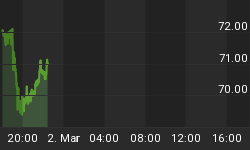George Soros' successful bet against the British pound back in 1992 remains one of financial history's epic tales.
The short version of the story begins with Britain linking its currency, the pound, to the German deutschmark via the European Exchange Rate Mechanism (ERM). But Britain's inflation rate was higher than Germany's, which created a growing mismatch between the currencies' real value.
In order to maintain the peg Britain raised interest rates and spent its foreign exchange reserves. But hedge funds, with Soros in the lead, sensed imminent failure and placed big bets against the pound. They were right: After some official bluster and shrill denials, Britain was in the end forced to withdraw from the ESM and devalue its currency, thus making fortunes for its hedge fund tormentors ($1 billion for Soros alone).
Now fast forward to 2016. China has pegged its currency, the yuan, to the US dollar, but as the dollar rises -- taking the yuan along with it -- China's economy is slowing down and many believe the only way to stop the slide is to devalue. Some high-profile hedge funds (including an older but apparently still bold Soros) now view China as another Great Britain and are trying for a replay by shorting the yuan.
U.S. hedge funds betting big against China's yuan
(MarketWatch) - Some of the biggest names in the hedge-fund industry are piling up bets against China's currency, setting up a showdown between Wall Street and the leaders of the world's second-largest economy.
Kyle Bass's Hayman Capital Management has sold off the bulk of its investments in stocks, commodities and bonds so it can focus on shorting Asian currencies, including the yuan and the Hong Kong dollar.
It is the biggest concentrated wager that the Dallas-based firm has made since its profitable bet years ago against the U.S. housing market. About 85% of Hayman Capital's portfolio is now invested in trades that are expected to pay off if the yuan and Hong Kong dollar depreciate over the next three years--a bet with billions of dollars on the line, including borrowed money.
"When you talk about orders of magnitude, this is much larger than the subprime crisis," said Bass, who believes the yuan could fall as much as 40% in that period.
Billionaire trader Stanley Druckenmiller and hedge-fund manager David Tepper have staked out positions of their own against the currency, also known as the renminbi, according to people familiar with the matter. David Einhorn's Greenlight Capital Inc. holds options on the yuan depreciation.
China, of course, isn't taking this lying down. Remember that its leaders are essentially central planners with at best a vague understanding of markets, who don't see how private individuals can or should get away with attacking their financial system. This, to them, is a declaration of war.
They point out that they've got some weapons, including $3+ trillion of foreign exchange reserves and total control of the regulatory apparatus, and are not afraid to use them. The hedge funds, meanwhile, don't seem too worried. Fascinating stuff!
But what does it mean for the rest of us? Well, if China is forced to devalue the yuan by the 40% the hedge funds expect (and that fundamentals seem to require), it will have fired not just a bazooka but an ICBM in the currency war. For the world's second biggest economy to devalue on that scale would send shock waves through Europe, Japan and the US.
In the US, for instance, today's strong dollar is already creating a corporate earnings recession. A suddenly-much stronger dollar would magnify the problem, at a minimum causing an equities bear market. And the US is the least vulnerable of the three main victims. Europe is already on the edge of an economic/geopolitical/demographic abyss, and a spike in the euro might be the last straw. Japan, meanwhile, is trying to devalue its own currency and would either have to admit defeat and accept deflation forever or respond in kind, with massively-negative interest rates.
To sum up, a big yuan devaluation might force the same decision on much of Asia, Europe and North America -- all at once. So instead of a drawn-out, back-and-forth currency war over the next few years, the process would be compressed into just a few trading days.
If, on the other hand, China succeeds in keeping a stable yuan/dollar peg, then some big and highly-leveraged hedge funds will lose a bet they may not be able to cover. Temporary stability in foreign exchange markets will have been bought at the cost of turmoil in the leveraged speculating/money center banking community.
Whoever says finance isn't fun just isn't paying attention.















